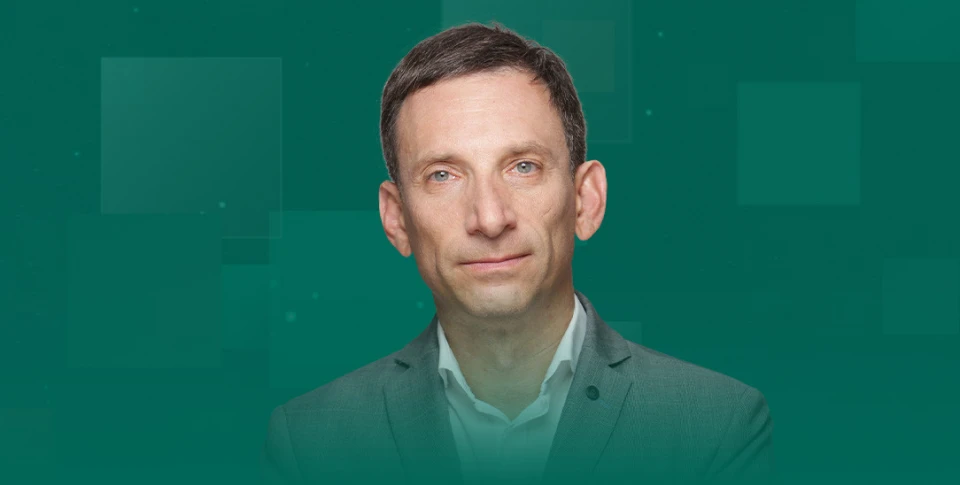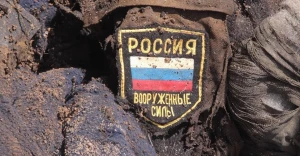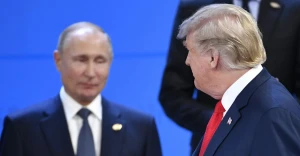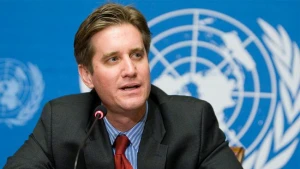
Kellogg pushes elections in Ukraine
U.S. presidential envoy Keith Kellogg suggests holding elections in Ukraine, even before a ceasefire, raising concerns about feasibility and security
Special representative of the U.S. president for resolving the Russia-Ukraine war, General Keith Kellogg, emphasized in an interview with Reuters that Donald Trump's administration is interested in holding presidential and parliamentary elections in Ukraine this year.
Kellogg stated that such elections could take place after a temporary ceasefire is reached in Ukraine, and the winner would then play a key role in negotiating a long-term peace agreement between Ukraine and Russia.
However, Kellogg did not rule out that elections could be held even without prior agreements to end hostilities. He said that the "beauty of democracy" lies precisely in holding such competitive elections.
Democracy indeed has its beauty. However, it remains entirely unclear how Keith Kellogg and his boss, Donald Trump, envision holding elections in Ukraine before the end of active warfare.
First, the Ukrainian Constitution explicitly prohibits any electoral process while martial law is in effect. Imagining its cancellation while Ukrainian forces continue to repel Russian advances and Ukraine remains under constant missile and drone attacks is, to put it mildly, unrealistic.
Not to mention that participating in elections would pose a serious security risk due to large gatherings in areas that could be targeted by Russian missiles or drones. Other challenges of conducting elections under martial law include ensuring the integrity of voting, enabling military personnel to vote, and providing voting opportunities for millions of Ukrainians abroad. Ultimately, there is also the issue of electoral competitiveness, which Kellogg refers to as democracy’s beauty.
It is obvious that political battles in presidential and parliamentary elections would further divide Ukrainian society and fuel internal hostility, leading to a potential defeat in the war against Russia. But let’s assume elections are held after a so-called temporary ceasefire.
First, it is entirely unclear how Keith Kellogg and Donald Trump plan to secure such a ceasefire from Russian leader Vladimir Putin. The U.S. administration may be responding to Putin’s repeated claims that he does not consider Ukrainian President Volodymyr Zelenskyy legitimate and prefers to negotiate with someone who has renewed legitimacy.
However, it is crucial to understand that Putin is not genuinely concerned about Zelenskyy's legitimacy. This is merely an excuse to avoid negotiations with Ukraine and to refuse signing any agreements that would commit Russia to ending the war.
Putin has always played games with the legitimacy of Ukrainian presidents. He met and negotiated with Petro Poroshenko in 2014 and with Volodymyr Zelenskyy in 2019. Later, he dismissed Ukraine’s leadership as illegitimate, citing the so-called 2014 coup that ousted pro-Russian President Viktor Yanukovych.
When it benefits him, Putin recognizes Ukrainian presidents and expects concessions or even capitulation. But when they refuse to surrender, he deems them illegitimate and points to Yanukovych’s supposed legitimacy. Until Trump and his circle realize that Putin's goal is to prolong the war rather than achieve peace, they will continue reacting to deceptive pretexts that have no basis in real politics.
But let’s assume a ceasefire does take place. What would the political process look like then?
How quickly could Ukraine organize elections? And would the results satisfy Donald Trump — and more importantly, Vladimir Putin?
Could we assume that in Ukraine’s first post-war elections, a candidate or party advocating reconciliation and coexistence with Russia, while fulfilling all of the Kremlin’s demands, would win? In other words, demands for Ukraine’s political capitulation.
It is possible that such a political force might gain influence over time, especially in a prolonged economic crisis when the memory of Russia’s war crimes fades against pressing social and economic challenges. This is similar to what eventually happened in Georgia.
However, the key figures in Ukraine’s post-war elections will be those who defended the country against a brutal and treacherous enemy — Russia. The idea that Ukraine’s next president would capitulate to the Kremlin, even with Trump’s full backing, is highly naive.
Moreover, it is doubtful that Putin is naive enough to seek elections that could legitimize someone unwilling to surrender Ukraine to Russia. This brings us back to the main question: should Trump and Kellogg even engage with Putin’s rhetorical arguments?
Most importantly, what real tools do Trump and Kellogg have — beyond public statements and interviews — to compel the Kremlin to agree to a lasting peace or even a ceasefire? A decision that could create theoretical conditions for holding elections in Ukraine once martial law is lifted.
About the author: Vitaliy Portnikov, journalist, laureate of Ukraine’s National Shevchenko Prize.
The editorial board does not always share the views expressed by blog authors.
- News












































